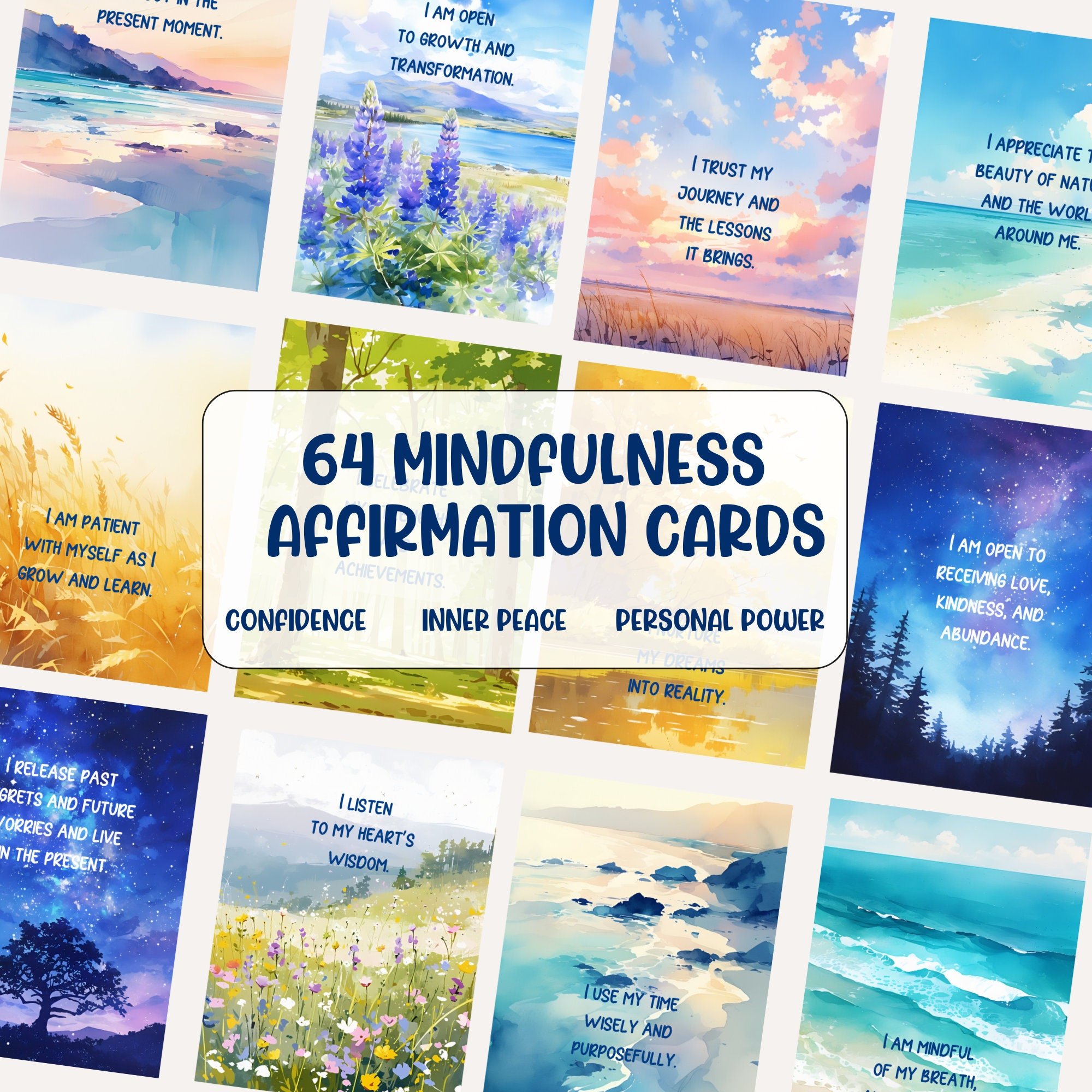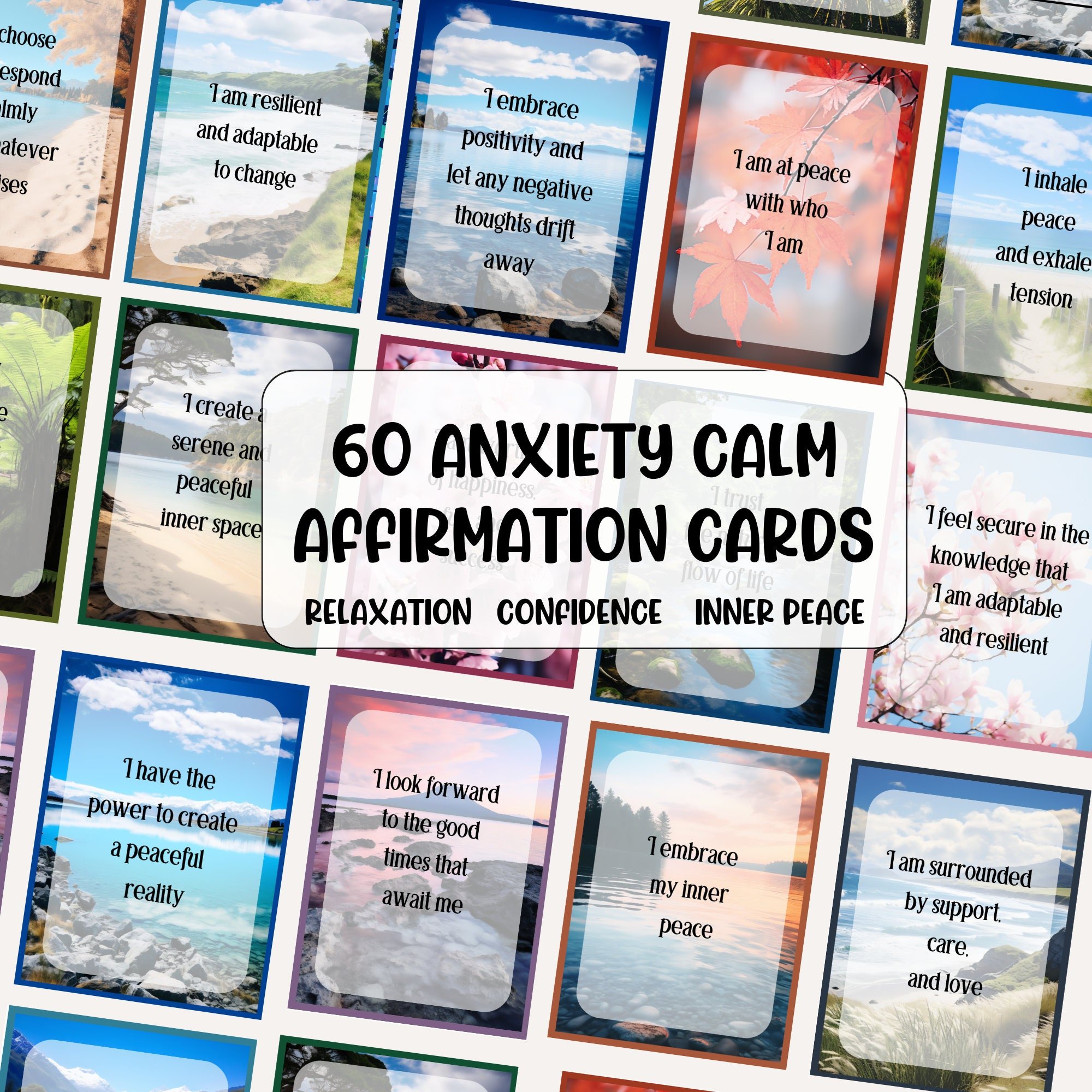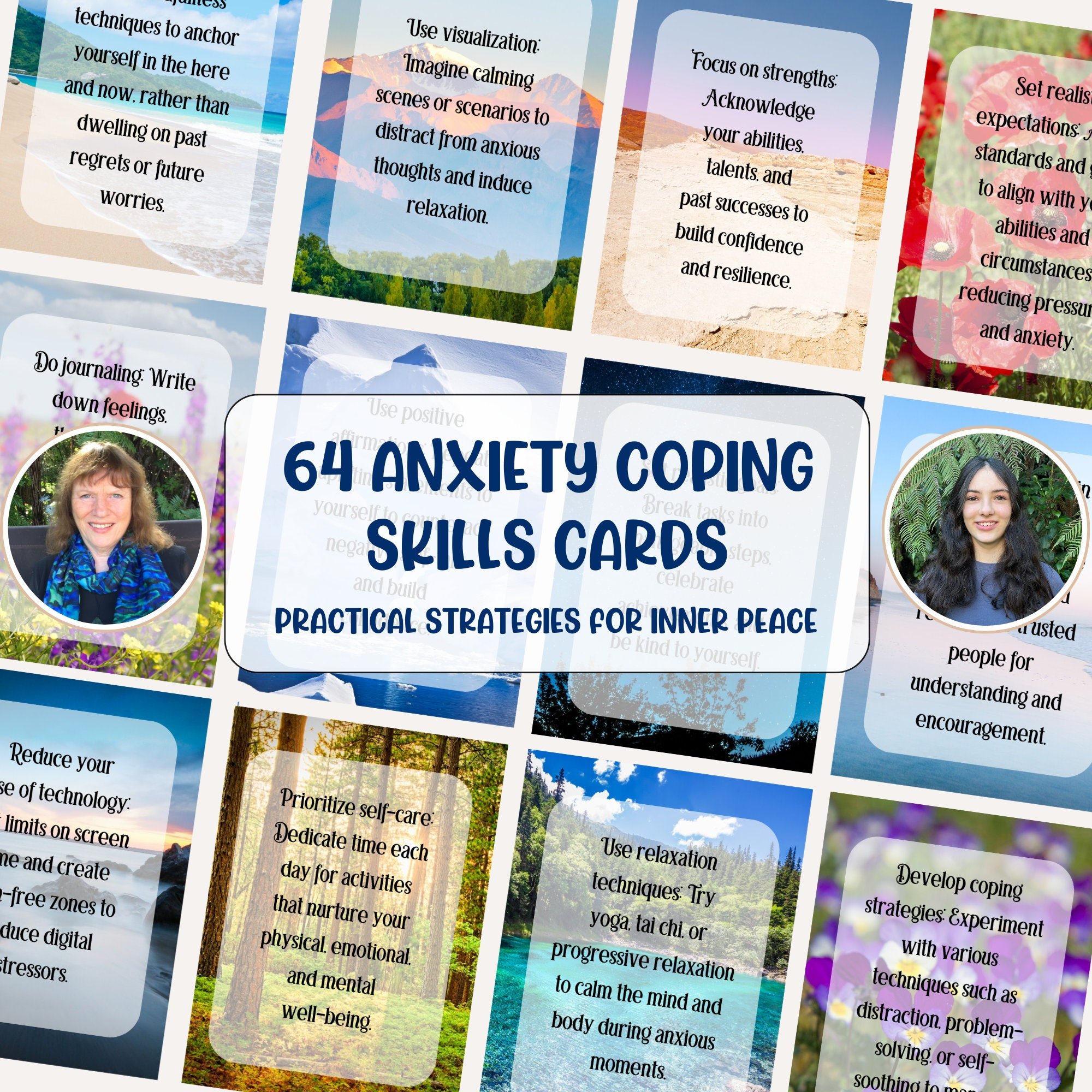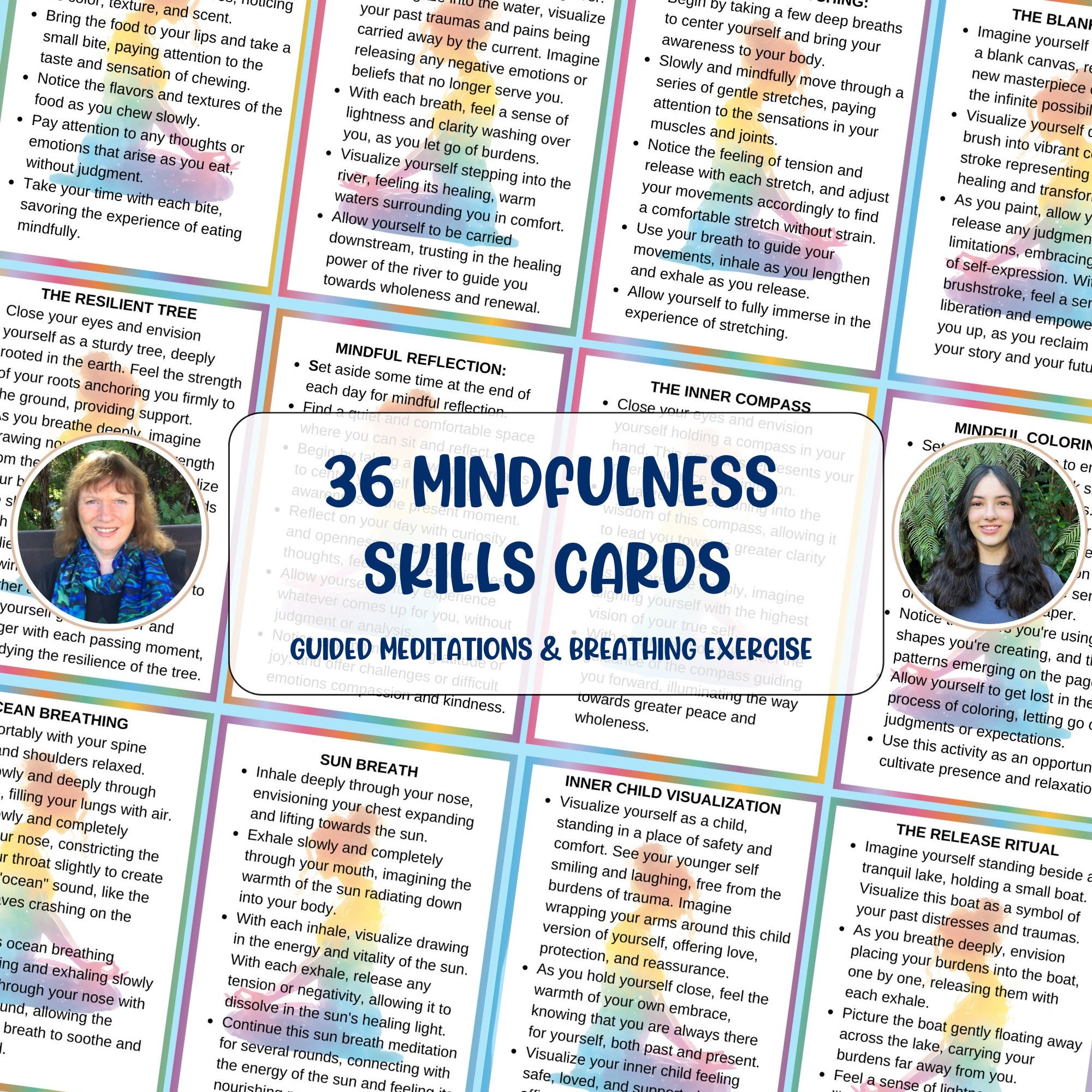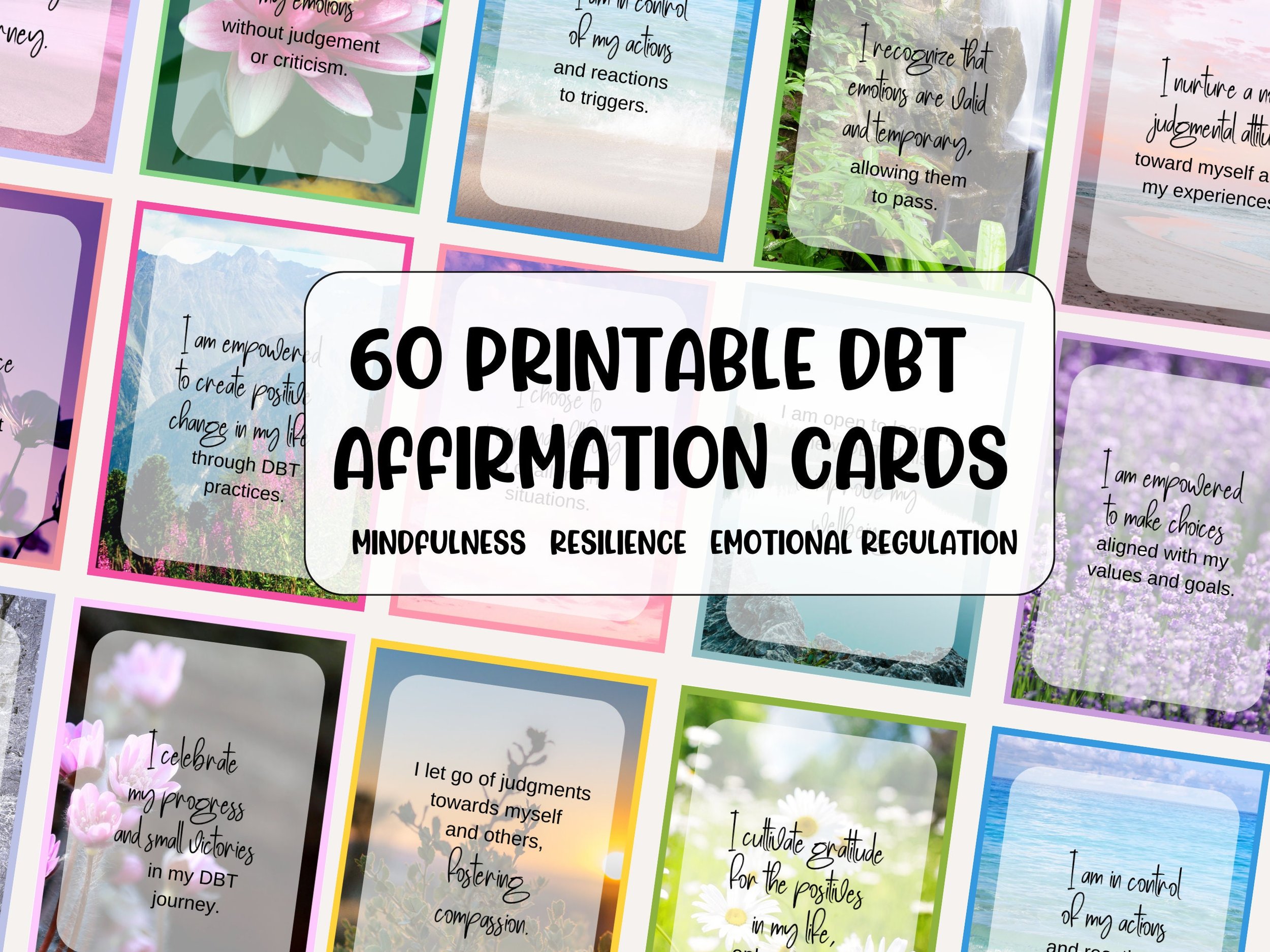How to Practice Self-Care When You’re Overwhelmed
When life feels like too much, even the idea of self-care can feel impossible.
You might think, “I don’t have time for that right now,” or “I wouldn’t even know where to start.” And that’s okay.
When we’re overwhelmed, our nervous system moves into survival mode — doing its best to protect us.
In those moments, what we need isn’t more pressure or performance.
We need calm, compassion, and the smallest possible steps toward regulation and rest.
Step 1: Start Small — Simplicity Is Healing
When energy is low and your mind feels cluttered, start with something simple and soothing.
The goal isn’t to fix everything — it’s to remind your body that safety is possible.
You might reach for one of your Self-Care Strategy Cards, each designed to offer gentle, doable actions when clarity feels out of reach.
Draw one card and follow its invitation without judgment.
“Step outside and notice one thing that feels peaceful.”
“Breathe deeply and unclench your shoulders.”
“Drink water as though it matters — because it does.”
These small choices teach your nervous system that relief doesn’t have to be dramatic — it can be soft, slow, and safe.
Step 2: Regulate Before You Reflect
Before you can think clearly, your body needs to calm enough to feel steady.
That’s where my Emotional-Regulation Strategy Cards come in.
Each card offers quick, science-backed tools for soothing an overactive nervous system. Try one when you feel tension building:
“Run cool water over your hands and breathe out slowly.”
“Notice five things you can see and name them.”
“Place a comforting hand on your chest and hum softly.”
These grounding techniques bridge the gap between overwhelm and presence.
Once your body begins to settle, your thoughts will naturally follow.
Step 3: Write Your Way Back to Clarity
When emotions are tangled, writing helps slow everything down to a gentle pace.
It turns racing thoughts into words your heart can actually understand.
Using my Mindfulness Writing Prompts, spend a few quiet minutes answering one question with curiosity, not pressure.
Prompts like these can help you reconnect to yourself:
“What does my body need most right now?”
“If I wasn’t being hard on myself, what would I say instead?”
“How can I bring softness to this moment?”
There’s no right way to do this — your words don’t have to be neat or wise.
The act of slowing down enough to listen is the healing.
Step 4: Speak to Yourself With Compassion
Overwhelm can awaken our harshest inner critic — that voice that says, “You should be stronger,” or “Everyone else handles this better.”
But self-criticism doesn’t create growth; it creates shutdown.
Self-compassion is how you open again.
Pull a Confidence Affirmation Card and read it aloud slowly — even if part of you doesn’t believe it yet.
“I am doing my best with the energy I have today.”
“I can be both struggling and worthy.”
“My gentleness is a sign of strength.”
Keep the card near you as a quiet reminder that kindness is power — and that your worth isn’t dependent on how much you can do.
Step 5: Redefine What Self-Care Really Means
Self-care isn’t about perfection, productivity, or aesthetics.
It’s about tuning in — asking, “What would feel nurturing right now?” — and following through with care.
Some days, self-care will mean journaling or moving your body.
Other days, it might simply mean turning off notifications, closing your eyes, and breathing.
Both are valid. Both are healing.
The key is consistency — small, steady acts of compassion that, over time, rewire your nervous system to expect calm instead of chaos.
Reflection Invitation
If you can, take a deep breath and ask yourself:
“What does my overwhelmed self need from me right now?”
You might hear: Rest. Water. Quiet. Understanding.
Trust that answer.
Every time you listen and respond with kindness, you rebuild the bond between your mind, body, and heart.
That’s the essence of true self-care — not effort, but alignment.
In Closing
Self-care isn’t something you earn after you’ve done enough.
It’s something you deserve because you’re human.
When you feel overwhelmed, begin again gently.
Reach for your Self-Regulation Strategy Cards to calm your body,
your Mindfulness Writing Prompts to clear your mind,
your Confidence Affirmation Cards to lift your spirit,
and your Self-Care Strategy Cards to remind you what compassion looks like in action.
Healing doesn’t happen all at once.
It happens in small, loving choices — over and over — until they become second nature.
You’re not behind.
You’re rebuilding.
And that is the bravest form of self-care there is.



